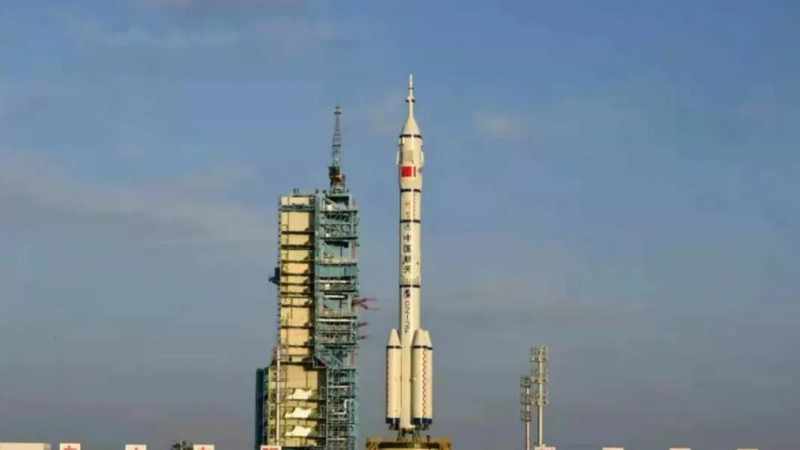
China has announced the successful launch of its Shenzhou-12 manned spacecraft on Thursday morning.
A Long March 2F Yao-12 carrier rocket carrying the Shenzhou-12 crewed spaceship blasted off at 09:22 Thursday (Beijing Time) from the Jiuquan Satellite Launch Center in northwest China.
About 573 seconds later, Shenzhou-12 manned spacecraft separated from the rocket and entered the predetermined orbit, successfully sending three astronauts – Nie Haisheng, Liu Boming and Tang Hongbo – into space. The flight crew was in good condition and the launch was a complete success.
“According to the report from Beijing Aerospace Control Center, the Long March 2F Yao-12 carrier rocket has accurately sent the Shenzhou-12 manned spacecraft to the designated orbit. The solar panels opened normally, and operated normally. Now I announce, the Shenzhou-12 manned spacecraft launch mission is a success,” said Zhang Zhifen, director of the Jiuquan Satellite Launch Centre.
Chinese Vice Premier Han Zheng, also a member of the Standing Committee of the Political Bureau of the Communist Party of China (CPC) Central Committee, watched the live broadcast of the launch at the Beijing Aerospace Control Centre, and shook hands with the technicians in the centre in congratulation.
Xu Qiliang, vice chairman of the Central Military Commission and a member of the Political Bureau of the CPC Central Committee, watched the launch at the Jiuquan Satellite Launch Center, and shook hands with the technicians in the centre in congratulation.
It is China’s seventh crewed mission to space and the first during the process of the building of China’s space station, according to the China Manned Space Agency (CMSA).
After entering the orbit, the Shenzhou-12 spaceship will conduct a fast automated rendezvous and docking with the in-orbit space station core module Tianhe, forming a complex with the core module and the cargo craft Tianzhou-2. The astronauts aboard Shenzhou-12 will be stationed in the core module and remain in orbit for three months.
The astronauts will operate the robotic arm and conduct activities outside the module to verify a series of key technologies such as astronauts’ long-term stay in orbit, regenerative life support technology.
At present, the complex of the core module Tianhe and the cargo craft Tianzhou-2 is operating in a near-circular docking orbit about 390km above the Earth, which is in good condition, meeting the requirements of the rendezvous and docking mission with the Shenzhou-12 and the conditions for the astronauts to enter the space station.